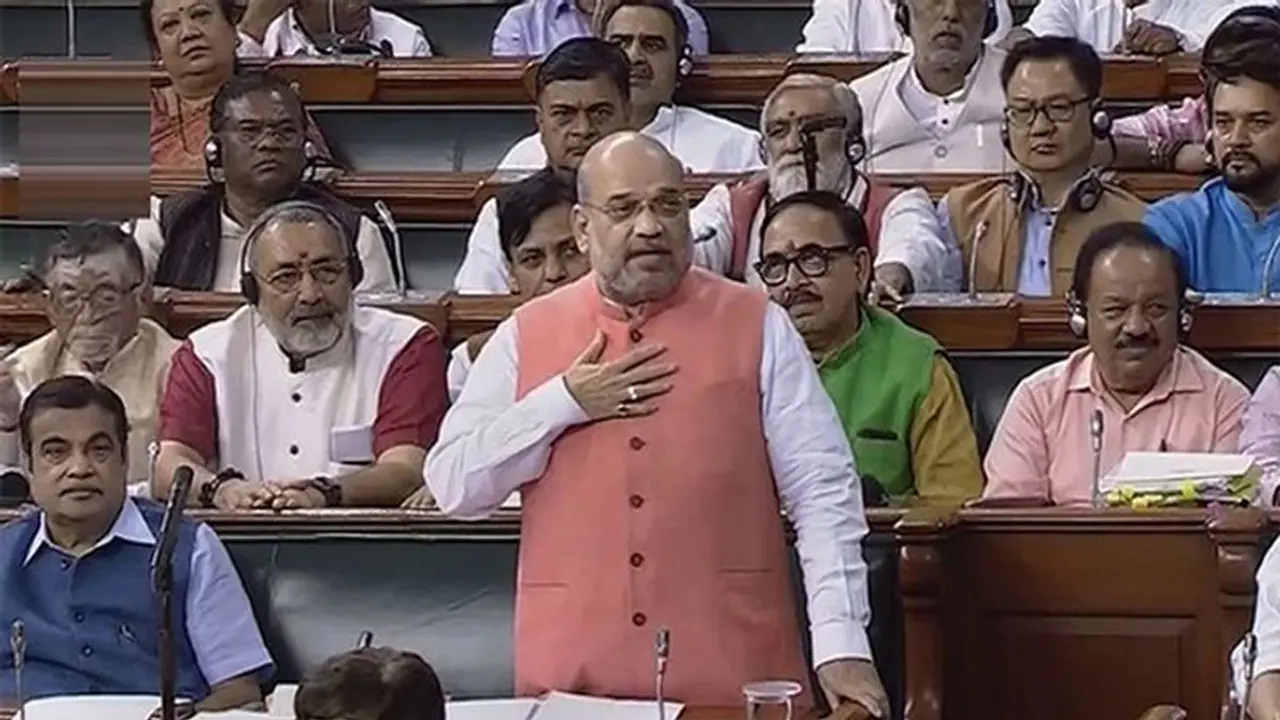Once again, Pakistan has sought to interfere in India’s internal matter by criticising the Citizenship (Amendment) Bill. However, it is the violation of the Nehru-Liaquat pact by Pakistan that has led to the need of the CAB
It was on expected lines that Pakistan once again sought to interfere in India’s internal matter. After criticising India’s decision to abrogate Article 370, Pakistan has now raised questions on the Citizenship (Amendment) Bill.
Pakistan described the Bill as the malafide intent by New Delhi to interfere in the affairs of the neighbouring countries. We condemn the legislation as regressive and discriminatory. It is in violation of all relevant international conventions and norms.
Pakistan also said that the law is premised on a falsehood and is in violation of the Universal Declaration of Human Rights.
During the debate in Parliament, Amit Shah made it clear had Pakistan followed in letter and spirit the Nehru-Liaquat Pact of 1950, the Bill would not have been necessary.
Does Pakistan have any locus-standi?
The Nehru-Liaquat pact is a standing agreement between India and Pakistan, which requires both countries to ensure that its minorities enjoy complete equality of citizenship with others and receive treatment identical to that available for other nationals of their country.
The external affairs minister in the Nehru government, Sardar Swaran Singh in his reply to Jan Sangha leader Niranjan Varma admitted that Pakistan has been violating the pact. Instances of violations came to notice almost immediately after the inception of the pact.
This clearly indicates that Pakistan had never followed the pact in letter and spirit and has since day one continued to persecute the religious minorities. As a result of this, several Hindus, Buddihsts, Sikhs, Parsis and now Christians have fled Pakistan. Scores of Hindus, Sikhs, persecuted in Pakistan live in India as second-rate citizens and the Modi government through the Bill seeks to give them their rights.
Pakistan’s statement on the Citizenship (Amendment) Bill reeks of hypocrisy and there are several instances to show that when it comes to human rights, Pakistan draws a blank. The country has been criticised on several international fora for large scale persecution of minorities living on its soil.
Religious persecution, a salient feature:
In October 2019, a Pakistani-American human rights activist, Fatima Gul, had said that religious persecution remains a salient feature of Pakistan.
While testifying before a Congressional hearing on the human rights situation in South Asia, she said that Pakistan is also one of the most dangerous countries for women. Religious persecution remains a salient feature of Pakistan. Hindus, Christians, Ahmadis and Hazara are helpless victims at the hands of the religious extremists who operate with government impunity.
She further added that Pakistan is primarily run by the Pakistan Army and Islamic extremist groups. A large number of people experience oppression, religious and political persecution by the government officials, she also said.
Looking at the state of affairs in Pakistan, it becomes clear that over the years, the situation for the religious minorities has only become worse. The entry of fundamental religious parties into national politics and the abusive manner in which the strict blasphemy laws are enforced has only worsened the situation.
In this context one must also recall the case of Asia Bibi, the Christian woman who remained on death row for over 8 years after being falsely accused of blasphemy.
All this even led to Pakistan being designated by the US Secretary of State as a Country of Particular Concern under the International Religious Freedom Act.
The declining minority in Pakistan:
Pakistan once had the fifth largest population of Hindus in the world. Post the partition, at least 4.7 million Hindus and Sikhs moved to India. The constant attacks on the religious minorities, particularly against the Hindus and Sikhs has led to these persons seeking a home in India.
The minorities in Pakistan say that the police offer no help. Take the case of Ranaram Bheel. He was living with his wife and daughter in Pakistan. His Muslim landlord kidnapped his wife and forcibly converted her to Islam and then married her.
When he approached the police, he got no support, following which, in 2004, he moved to India. He had no option but to move to India along with his daughter as he had been receiving constant threats from people.
The other problem is that the schemes and policies meant for the immigrants are not being implemented. The immigrants live in deplorable conditions. They do not have citizenship or documents. The case is the worst for the Hindus, who have fled to India to protect their wives and daughters from being abducted and forcibly converted to Islam.
The blasphemy laws in Pakistan have only contributed to the problem. Under these laws, it is a criminal offence to insult Prophet Mohammad, the Quran and Muslim religious personalities. Pakistan has over the years used these laws to persecute the minorities.
The blasphemy laws were originally introduced by the British to promote harmony. However, the current laws were introduced by Zia-ul-Haq under the Islamisation police.
Since the introduction of the new laws in the 1980s, religious persecution has only increased. It has also been used extensively against the Ahmadis, who claim that they are Muslim. However, under the Constitution of Pakistan, they are classified as non-Muslims. Under this law, several persons belonging to the minority community have been murdered, while scores languish in jails.
The biggest irony of this law is that it was brought in to protect the Muslim community who constitute 97% of the population. In reality it was brought in to persecute the 3% minority population in Pakistan.
